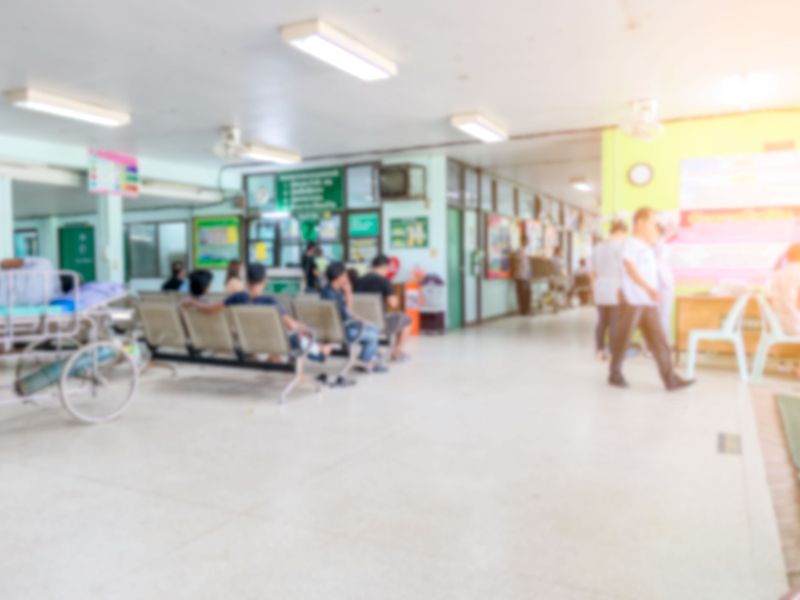
More often than we would care to admit, in today’s society, we neglect health care.
Consider the parents who consistently put the needs of their children in front of their own, ensuring their sons and daughters receive proactive and reactive care when required, but failing to do the same for themselves. You can say the same for the working professional who refuses to cancel a meeting to squeeze in a doctor’s appointment. Then there are those who abide by an “ignorance is bliss” approach and stay away from the doctor’s office for fear of what they might hear.
But what would you do if you needed more than something to deal with a sinus infection or your yearly flu vaccine? What would you do if you woke up one morning with sudden and complete loss of hearing in one if not both ears?
If your answer is just to wait it out until your hearing returns, there’s a good chance it never will. Hearing experts warn that if you don’t have sudden temporary hearing loss treated immediately, particularly if it’s at the nerve level, it may become permanent.
Sudden Hearing Loss, What is it?
According to the National Institute on Deafness and Other Communication Disorders (NIDCD), only about half the individuals who experience sudden hearing loss–the rapid loss of 30 decibels or more of hearing ability–will regain some or all of their hearing naturally.
Many people would be shocked to know how frequently sudden hearing loss occurs. As a matter of fact, studies estimate that there are between one and six individuals for every 5,000 each year who experience sudden hearing loss. Having said that, the NIDCD cautions that the amount of undiagnosed cases would cause that figure to go up if you were to include them. That means that about 400,000 (or more) Americans might experience sudden hearing loss every year.
The term “sudden” is somewhat of a misconception in this instance as what’s categorically labeled as sudden hearing loss can happen over several hours or up to three days.
What is The Cause of Sudden Hearing Loss?
Doctors are usually unable to determine the cause as it occurs over hours or even days. The sad reality is that only about 10 percent of people diagnosed with sudden loss of hearing have a cause that can be determined. Infections, head trauma, autoimmune diseases, exposure to certain drugs, blood circulation problems, neurological disorders and disorders of the inner ear are some of the most common causes that hearing specialist can pinpoint.
Your best chance of getting back at least some of your regular hearing function, as mentioned, is to get treatment as soon as possible.
How do You Deal With Sudden Hearing Loss?
In many cases, specifically those where the cause is unknown, the usual course of treatment consists of corticosteroids. Minimizing the swelling and reducing inflammation is the goal as with all steroid use.
The preferred means of treatment has evolved since researchers have carried out more studies on sudden loss of hearing and medicine has advanced. Pill form is how these steroids were historically prescribed, but this was a challenge for those who were unable to take oral steroids and those who were worried about the side effects linked to the medication.
A 2011 clinical trial backed by the NIDCD found that an injection of steroids into the eardrum proved to be just as effective as oral steroids, even allowing the medication to go right into the inner ear, without the downside of the oral alternatives. Ear, nose and throat specialist around the country regularly give these injections in the office.
Another reason why seeking immediate medical care is so important is that your doctor might order a group of tests that could diagnose the root problem behind your sudden hearing loss or another threatening condition. These tests may include blood-work, an MRI or other techniques for imaging and even an examination of your ability to balance.
We Might be Getting Close to New Treatment For Sudden Hearing Loss
Given the lack of solid information about the cause of sudden hearing loss, ongoing research digs deeper into what could be the cause. New developments with infusing drugs into tiny microspheres would provide a new technique of administering the steroids in what might be a safer way.
Researchers have proven that even though they might not have all the answers concerning sudden loss of hearing, your chances of getting your hearing back is improved by getting early treatment. If you’re experiencing hearing loss, either sudden or gradual, you should contact a hearing specialist right away.
